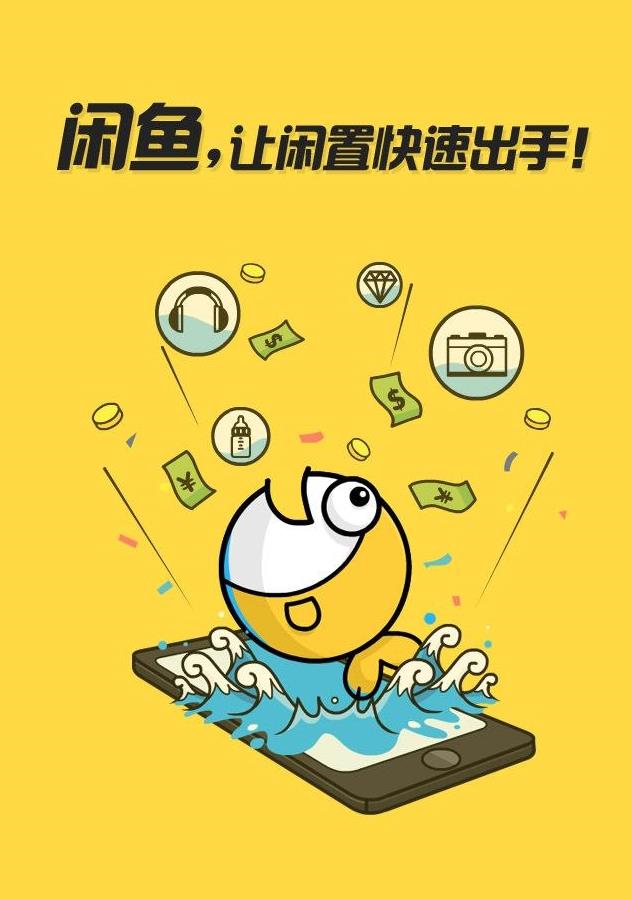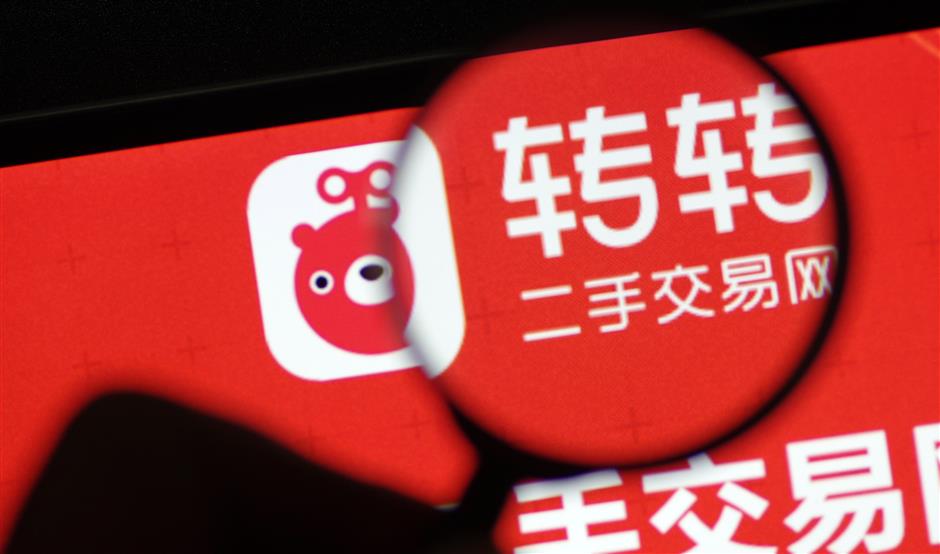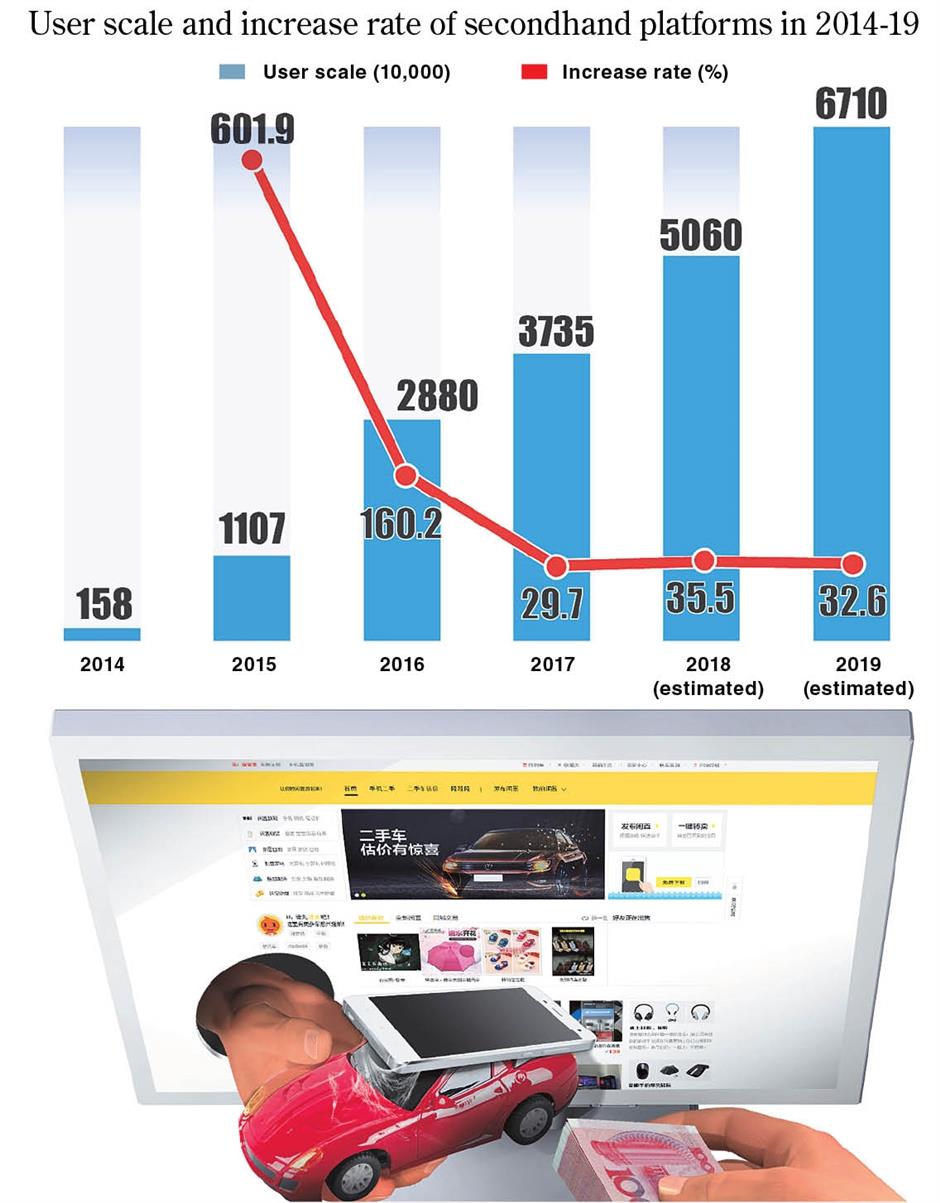Don't dump household discards. Sell them!
Shanghai white-collar worker Dora Cai looked around her home and decided she had an awful lot of stuff she no longer needed. What to do with it?
An online app called Idlefish (Xian Yu) gave her the answer. It’s a platform where secondhand goods are traded.
Cai took pictures of everything she was willing to part with, including a full set of “Sailor Moon” manga, a brand-new box of colored pencils and some unopened cosmetics.
“Most of these things I either bought on impulse or won in lucky draws,” she says. “I didn’t want to throw them out because many of these things are still quite new. I may not want them anymore, but I reckoned there might be someone who did.”
Most online selling in China is focused on new merchandise. It’s a roaring business in the nation. Selling secondhand goods, once relegated to flea markets, is now making inroads into e-commerce.
Over the course of a few months, Cai sold more than 10 goods on the Alibaba-managed website. Other items are still up for sale. “It seems that clothes are the least popular items,” she says. “I think eventually I’ll have to sell them by weight, say, 20 yuan (US$2.95) for half a kilogram of secondhand clothes.”
Cai, 29, who works for one of China’s largest banks, says she has friends and work colleagues who love browsing through secondhand trading apps looking for bargains. Some put personal possessions they no longer want up for sale.
“In fact, not many people really sell things that they possess,” Cai says. “They tend to think that they will come to regret the sale later. If they do decide to sell something, they may either offer a discount or even ask the original price.”

Idlefish (Xian Yu) is a platform where secondhand goods are traded.
Cai says she sells more than she buys on secondhand sites. Her best buys are concert tickets. “There are always people who cannot go to a concert after buying the tickets, and they are willing to sell them at low prices,” she says. “So when I want to go to a concert, I first check the secondhand apps.”
With the concepts of recycling and environmental protection actively promoted in China nowadays, more people are taking a new attitude toward secondhand goods. In the past, used goods were considered a bit low-life. People tended to be reluctant to buy secondhand stuff because it carried a certain stigma.
But that is changing. According to the China Center for Internet Economy Research, over 76 million people are registered at secondhand trading platforms, an increase of about 55 percent from a year earlier.
Users can put almost anything up for sale, as long as it’s legal. The variety of goods on offer is extensive, sometimes quite unusual.
For example, on Idlefish, a user with the screen name “FishMcDull” once sold the pull-tab of a beer can for 200 yuan. Not any ordinary pull-tab. This one had information on it promising the holder a trip on a cruise ship. “FushMcDull” said she didn’t have time to go on the trip.
Another user said he wanted to sell his dog’s fur, and buyers could use it to make felt toys. He claimed that he would “give the dog a belly rub” if an order was placed to ensure that the fur was freshly cut. The offer had no takers.

Zhuanzhuan.com is a secondhand smartphone seller.
Meanwhile, many buyers of secondhand goods are interested in electronic devices, such as smartphones, tablets, laptops and consoles. They are most keen to buy relatively new models at favorable prices. Among all products, smartphones are probably the most popular. Some secondhand platforms have zeroed in on that demand.
Zhuanzhuan.com is a secondhand smartphone seller owned by 58 Tongcheng. Since it began operation in late 2015, smartphone trading volume has increased 400 by percent every year.
To ensure the quality of the smartphones it lists, Zhuanzhuan established a professional team to test the functions of the used phones, including battery life, modular functions and surface damage. The company says it sometimes receives more than 24,000 daily orders for phone testing.
“We did a thorough market research when we first entered the market,” says Lei Mengran, public relations director of Zhuanzhuan. “We found that consumer demand for secondhand smartphones was great, but many potential buyers worry about being cheated by sellers. That’s why we believed an authorized testing service was a necessary component.”
The company’s research was not groundless. The platform has received so-called “refurbished” smartphones for testing and found they didn’t work at all. One seller, for example, claimed that he wanted a test on a 128GB iPhone 6S, but the testers found that it was actually a 16GB iPhone 6 with an iPhone 6S shell. The platform returned it and refused to list it.

There are currently no specific laws regulating the online secondhand trading realm. Policies may be forthcoming as consumer complaints about fake or low-quality goods and dishonest sellers increase.
A middle school student surnamed Zhang from Anhui Province wanted to buy a secondhand smartphone listed for 900 yuan. The seller told him he had to pay an advance of 400 yuan. After Zhang transferred the money, the seller blocked him and the product was removed from listing.
Sellers also can be victims of scams. A seller with the screen name “Xiaojiu” from the city of Xi’an, capital of Shaanxi Province, once listed a skirt that was too large for her for sale on a website. A buyer offered to trade a skirt in her size as payment. Xiaojiu agreed but never received the skirt long after her package was signed as received by the buyer. She called the buyer and threatened to call the police. The buyer finally relented and sent the skirt back to her.
For now, e-commerce researchers say online secondhand trading is based on mutual trust between sellers and buyers. However, trust can be a fickle commodity.
“We call it ‘the market for lemons,’ which means sellers always know more about the goods than the buyers,” says Lai Mingming, a researcher with the Institute of Economic Research of Renmin University of China. “That’s why cheating can occur.”
Experts say a new e-commerce law is in the making. Once implemented, it would regulate the market more strictly. But until that happens, secondhand trading platforms need to shoulder more responsibility in ascertaining the integrity of both sellers and buyers.















